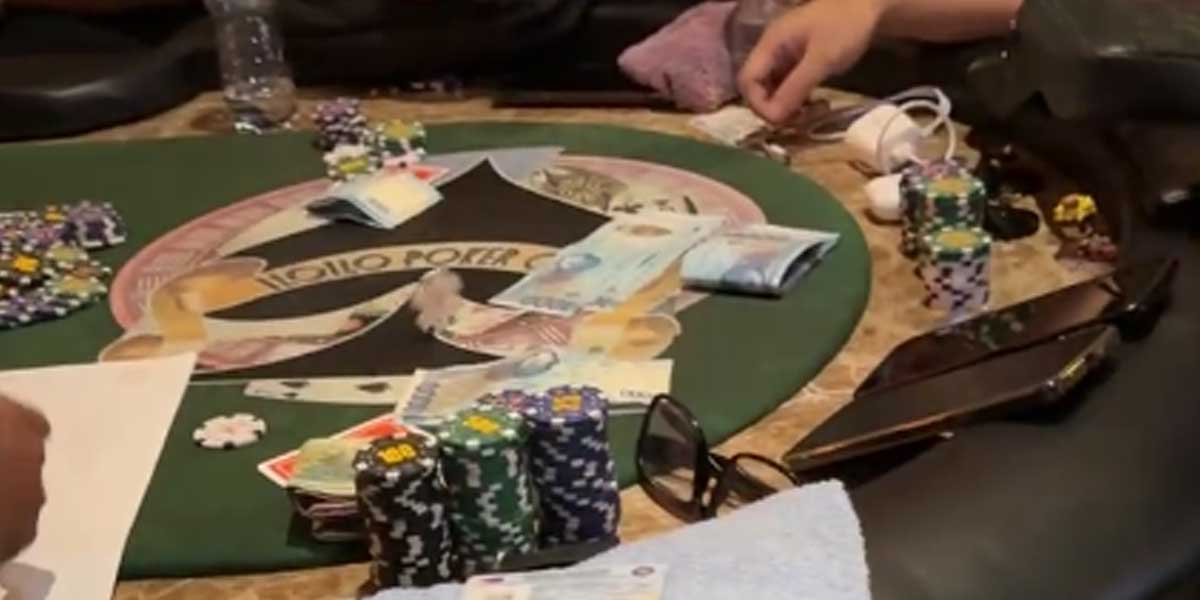By Herbert Vego
RAIN, rain, go away; come again another day. We have had more than enough of typhoon Agaton, with entire towns submerged in flood water. But with the Holy Week now “showing,” what better time than now to ask the Lord for divine mercy and forgiveness?
After all, the Holy Week is that moment in time when “Christian” thieves don’t steal, prostitutes stay at home, killers hold no guns and bullies turn sheepish. Nagapamalandong.
It’s as if it’s OK to sin the rest of the year, but not in the Holy Week. But oh, would the world not be safer if it were the other way around?”
I was a pre-school child when an old woman hushed me and my noisy companions for playing on Good Friday, “Sssh, patay na si Hesus,” as if Jesus dies every year.
Priests and pastors tell us a similar crucifixion story every year, but I have yet to hear differences in their retelling of it when in fact, Bible tales of Jesus Christ’s death do not find consistency in the Gospel books of Matthew, Mark, Luke and John. Amazingly, the Christian churches have ignored the Bible discrepancies by stressing only corroborative accounts.
Did Jesus die on a Friday and return to life on a Sunday? If so, that would be an interval of only two days!
Whereas, Jesus said, “I, the Messiah, am going to be betrayed and killed and three days later I will return to life” (Mark 9:31).
If he died on a Friday, shouldn’t he have risen on a Monday? He had to die on a Thursday if he had to rise on a Sunday!
It is not clear why the Jewish multitude shouted, “Crucify him!” Hadn’t they earlier welcomed Jesus with palm branches on his “triumphant entry” on a donkey into Jerusalem?
According to Matthew, Mark and Luke, it was Jesus’ act of driving money changers and merchants out of the temple that had infuriated the high priests.
However, John wrote a different version, interpreting the miracle of Jesus’ resurrection of Lazarus from the dead (after four days in the tomb) as the reason why chief priest Caiphas plotted Jesus’ death.
“For this man certainly does miracles,” said one of the priests. “If we let him alone, the whole nation will follow him. And then the Roman army will come and kill us and take over the Jewish government” (John 11:47-48).
While the gospel of John says nothing about the two thieves who were crucified on either side of Jesus, Matthew and Mark complement each other: The two thieves cursed him for being unable to bring them down the cross if he were really the Son of God (Matthew 28:38-44 and Mark 15:32).
But there’s a conflicting tale from Luke that the Christian world today exaggerates: While one of the robbers indeed mocked Jesus, the other supplicated, “Remember me when you come into your Kingdom” (Luke 23:42).
“And Jesus said unto him, ‘Verily I say unto thee, Today you will be with me in paradise’” (Luke 23:43).
The “seven last words” are not recalled in all four gospels, contrary to traditional re-enactments of the crucifixion. Matthew (28:14) and Mark (16:34) quote only one and the same: “My God, my God, why have you forsaken me?”
Luke has three: “Father, forgive them, for they don’t know what they are doing” (23:34); “Today, you will be with me in Paradise” (23:43); and “Father, into you I commit my spirit” (23:46).
John has another three: “Woman, behold your son” (19:26); “I thirst” (19:28); and “It is finished” (19:30).
Discrepancy mars the resurrection tales. In the book of Mark, three women – identified as Mary Magdalene, Salome and Mary the mother of James — visit Jesus’ tomb on Sunday morning, only to find it empty; the tomb stone cover has already been rolled away.
But in the book of Matthew, the same women found it closed. Then the earth quaked while an angel rolled the stone away, revealing an already empty tomb.
The apostle Paul recalls that the resurrected Jesus lived 40 more days in the company of “doubting Thomas” and the other apostles, after which “he rose into the sky and disappeared into a cloud, leaving them staring after him” (Acts 1:9).
As to what happened in those 40 days, we can only huff and puff, “Secret….”
-oOo-
LET THE OFWs VOTE
IN a message addressed to this writer, incumbent Antique congresswoman Loren Legarda – now a come-backing senatorial candidate — expressed a “panawagan” to all Filipinos to encourage their relatives abroad to avail themselves of the Absentee Voting Act (Republic Act No. 9189).
She was one of the senators who framed the law as passed in 2003. It mandates the Department of Foreign Affairs (DFA) to assist registered overseas Filipino voters in casting their votes in Philippine embassies and consulates worldwide.
The month-long voting for overseas Filipino workers started Sunday (April 10), albeit not in all voting centers due to delay in shipment of ballots from Manila. They have until election day in the Philippines (May 9) to vote.
The Philippine consulate general in Shanghai, China opted to suspended voting because the city is still under COVID-19 lockdown.
Overseas voters may only vote for president, vice president, 12 senators, and a party list group.
In her appeal in Filipino, Legarda said, “Hinihikayat ko ang ating mga kababayan sa labas ng bansa na huwag sasayangin ang inyong boto dahil nakasalalay dito ang kalagayan at kinabukasan ninyong mga OFW, ng inyong pamilya, at ng buong bansa.”
There are almost 1.7 million registered Filipino overseas workers. Thanks to the internet media, they are as knowledgeable as us on political developments here. But since we know better, let us give them our “take” on who deserves their votes.
In a past column, I told my kababayan Eric Otayde that while I could not support Loren’s brother AA Legarda for congressman of Antique because I am for Ade Fajardo – son of my working partner, the late Danny Fajardo — I believe Loren deserves a return to the Senate.
During his time as chairperson of the Senate Committee on Finance, she worked for the opening of embassies in Stockholm, Sweden; Rabat, Morocco; Copenhagen, Denmark and new consulates in Frankfurt, Germany; Houston, Texas; Barcelona, Spain; Nagoya, Japan; Melbourne, Australia; and Istanbul, Turkey.
She also sponsored the augmentation of the budget for the creation of a special task force and victims’ assistance program under the Department of Labor and Employment (DOLE).





















